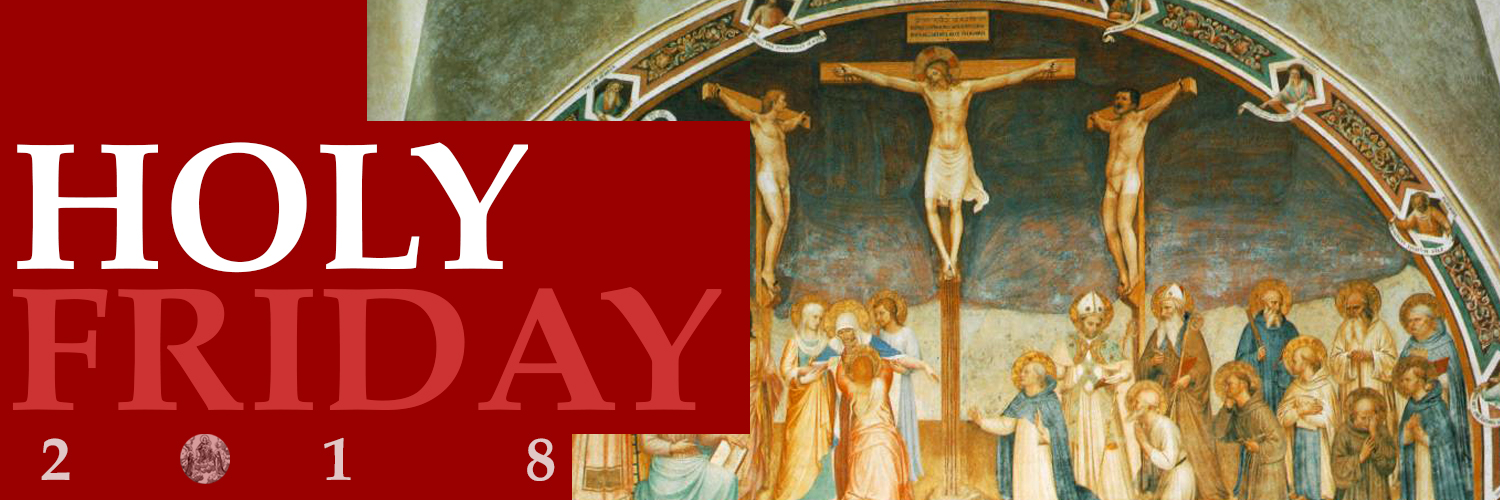Good Friday is the day when Christians seek to discover and understand the meaning of the passion and the Cross of Jesus Christ. This year we do it with the Gospel according to John. A peculiar story, in which the author says of himself: "He who saw it bears witness, and knows that it is true and tells the truth so that you too may believe." An expression with which John apostle does not refer only to having seen physically, with his own eyes, but to have understood the meaning of the crucifixion and death of Jesus. He narrates it to help us understand the perspective from which there is to look at it
The narration of St. John about the passion, crucifixion and death of the Lord is preceded by the announcement of the glorification that shows Jesus so well aware of what is going to happen with his life: "The time has come for the Son of Man be glorified" And the image of the grain of wheat that if it does not die is sterile but if it dies it bears much fruit, it serves St. John to show us that death and glorification are closely linked. "Now my soul is disturbed and what am I going to say? Father moves away from me this hour, but if that is what I have arrived for at this time, Father glorify your Name."
In this context the story of the passion of St. John begins with the betrayal of Judas, when Jesus approaches, and knowing what was coming on him, he goes forward and says: I am ... I am and for that I have Come, he will repeat later before Pilate.
Throughout so many comings and goings, from Anas to Caiaphas and from Caiaphas to Pilate, the story of St. John is prolix in repeating a refrain up to half a dozen times: "So that the scriptures could be fulfilled". In each part of the story, from the moment they come to light it until the dresses are distributed, or I am thirsty, S. John is insisting that this is what the scriptures said. Everything is happening so that God's plan is fulfilled, until we can say: Everything is fulfilled and give up his spirit. With this St. John tries to tell us that Jesus was not executed, nor condemned, and if you hurry me, they did not kill him. I prefer the text where Jesus himself says: Do not take my life, I am the one who gave it.
Sometimes, given the extent of the stories of passion and death in the Gospels as a whole, we can think Jesus' whole life is defined and made meaningful by His death. But it is the other way around, it is death that defines itself and acquires meaning through the style of life, the works and the message to which Jesus dedicated His life. His life was all oriented towards God and the implantation of his reign. And it was that orientation of His whole life that led Him to neglect the value of His safety and His own life.
In those days Jesus was aware that His life, like that of John the Baptist, was going to suffer an ignominious death. There is a very early tradition, which was already in the 70s, and which echo the first Gospels, according to which Simon, a Pharisee, approached Jesus in those days to warn him of the danger that ran with Herod asking him that he moved temporarily away from Jerusalem. Jesus seems to have listened sympathetically to the good Simon, and said: Simon, what do you want? Let me give up preaching what I came for and renounce my mission.
The death of Jesus is not isolated from the rest of His life and the message He announced. It is the historical expression of the unconditional character of its proclamation and lifestyle, before which the foreseeable and fatal consequences for its own life pale. His passion and death is the final result of an experience of fidelity and total dedication to the cause of God. To proclaim today the passion and death of Jesus Christ requires learning to make ours the experience of fidelity and dedication so that all may have life.
Every Holy Friday we are invited again to do our work, our daily life, our joys and sorrows, our health and illness, our own life, a search for dedication and fidelity that allows us to reach the "everything is fulfilled". Amen.

Fr. José Parra, OP.

